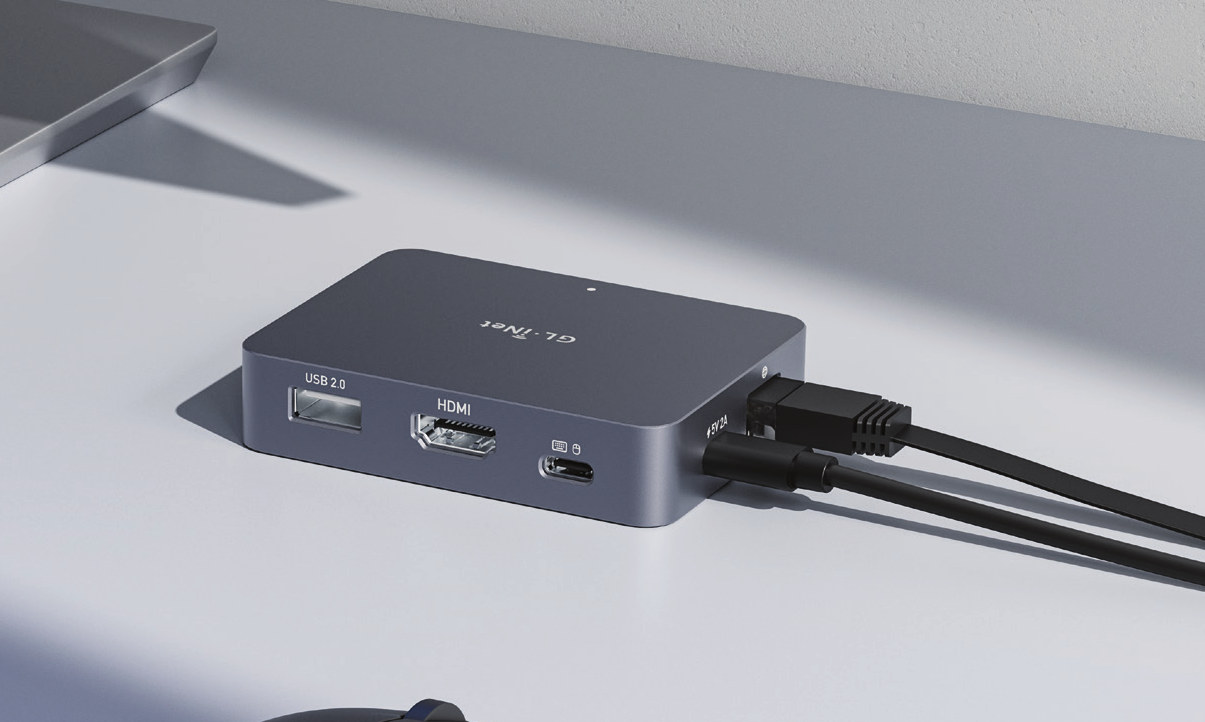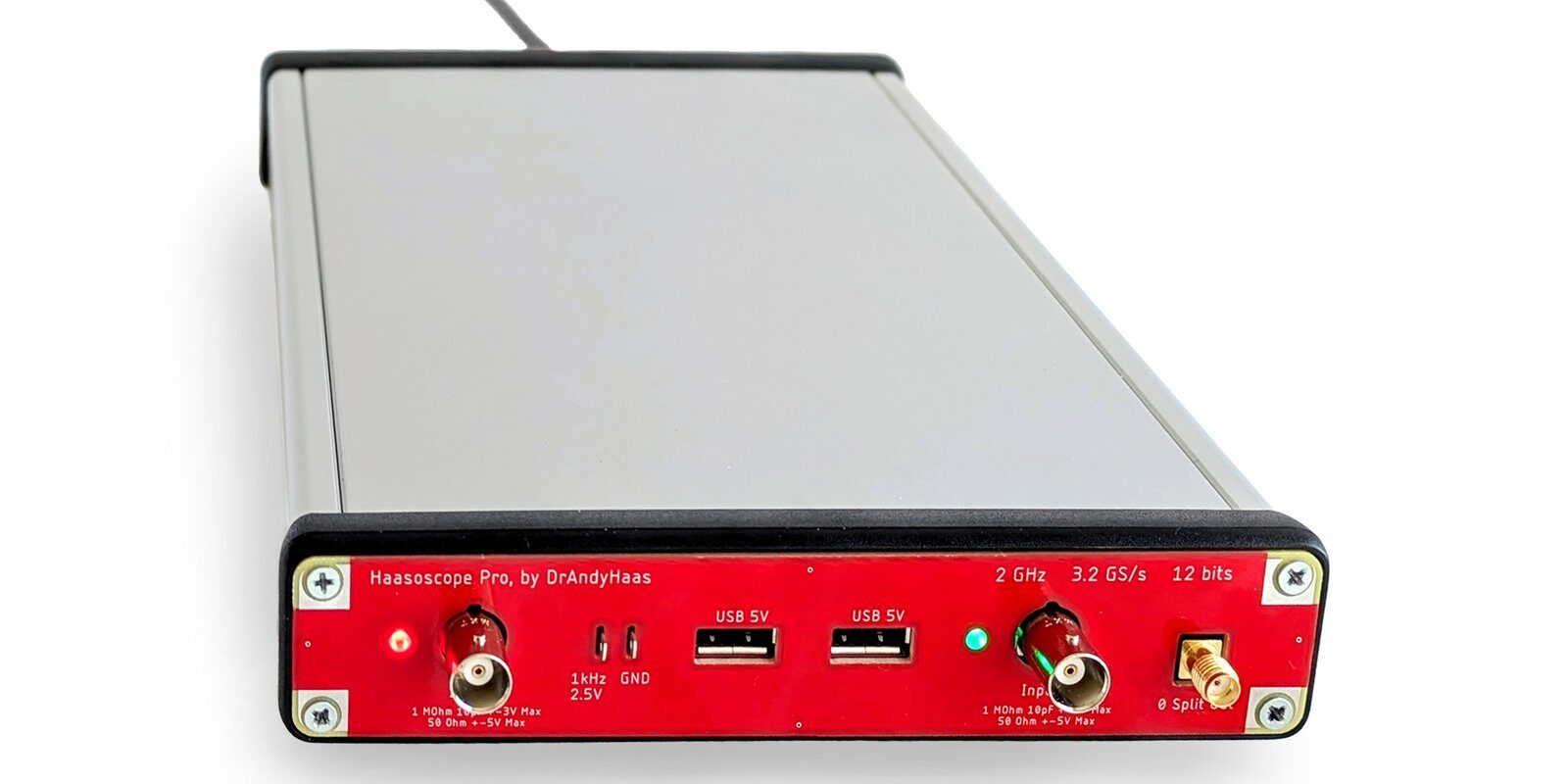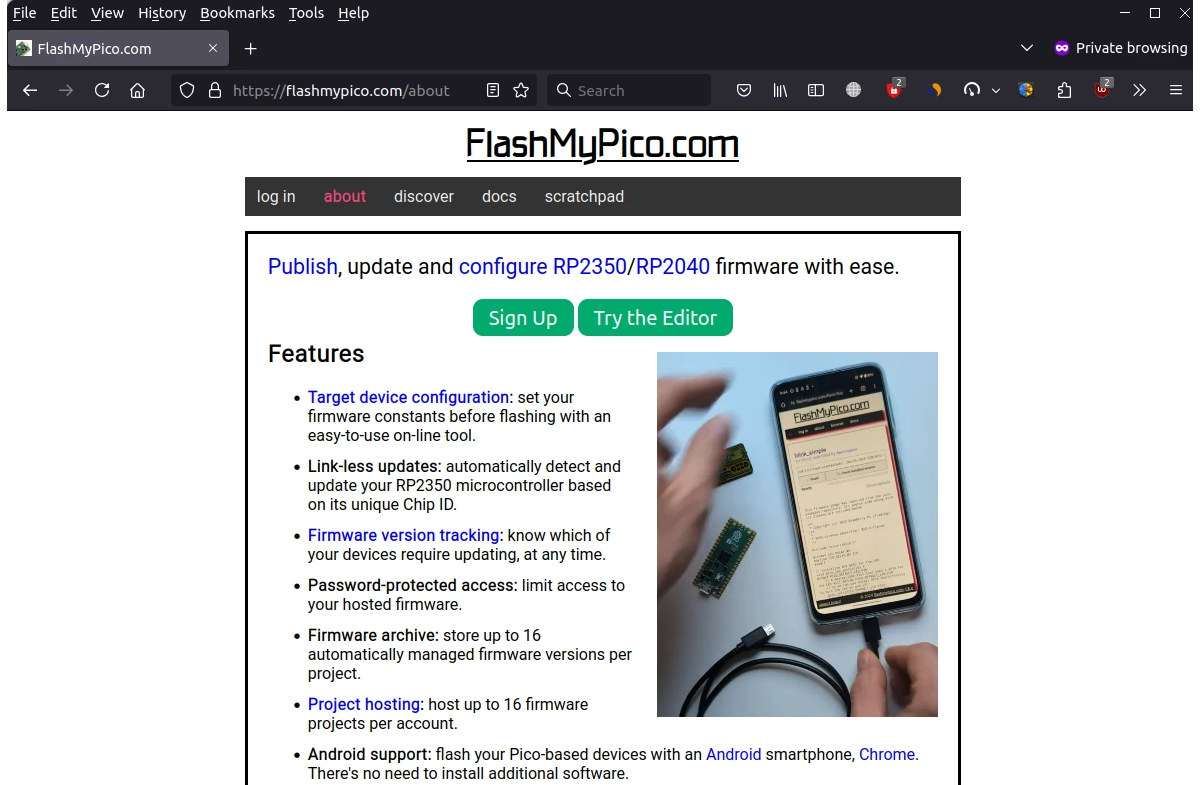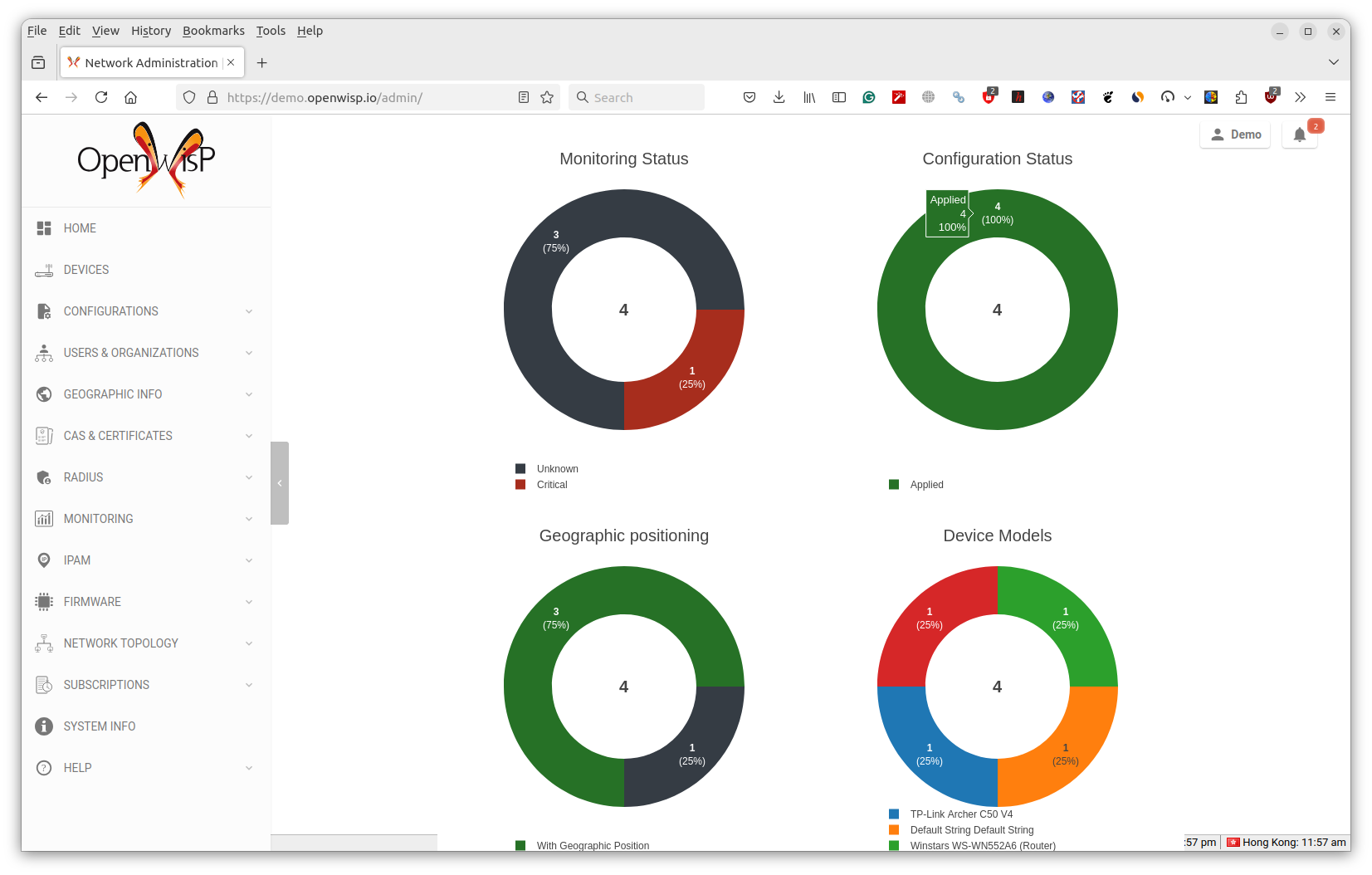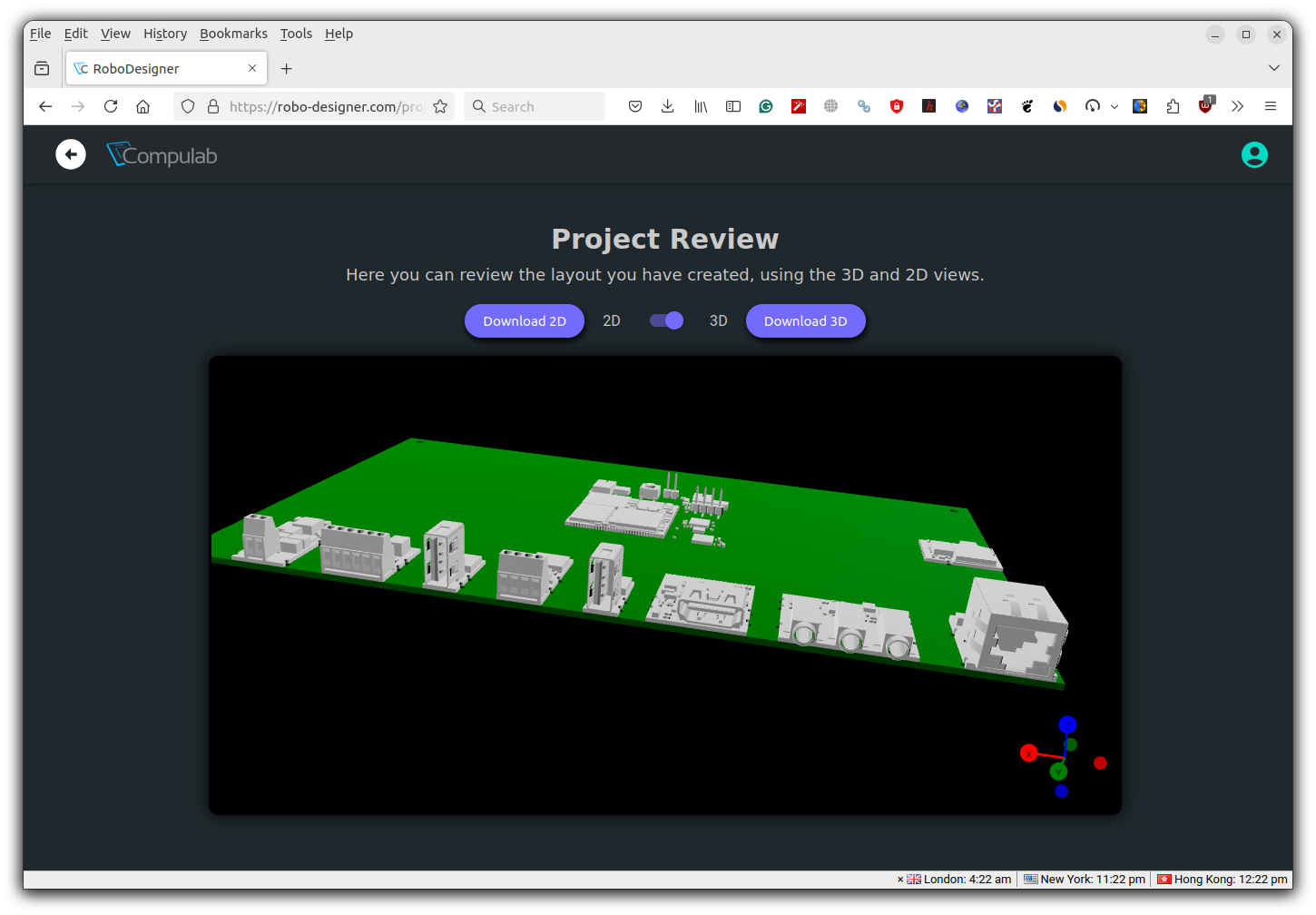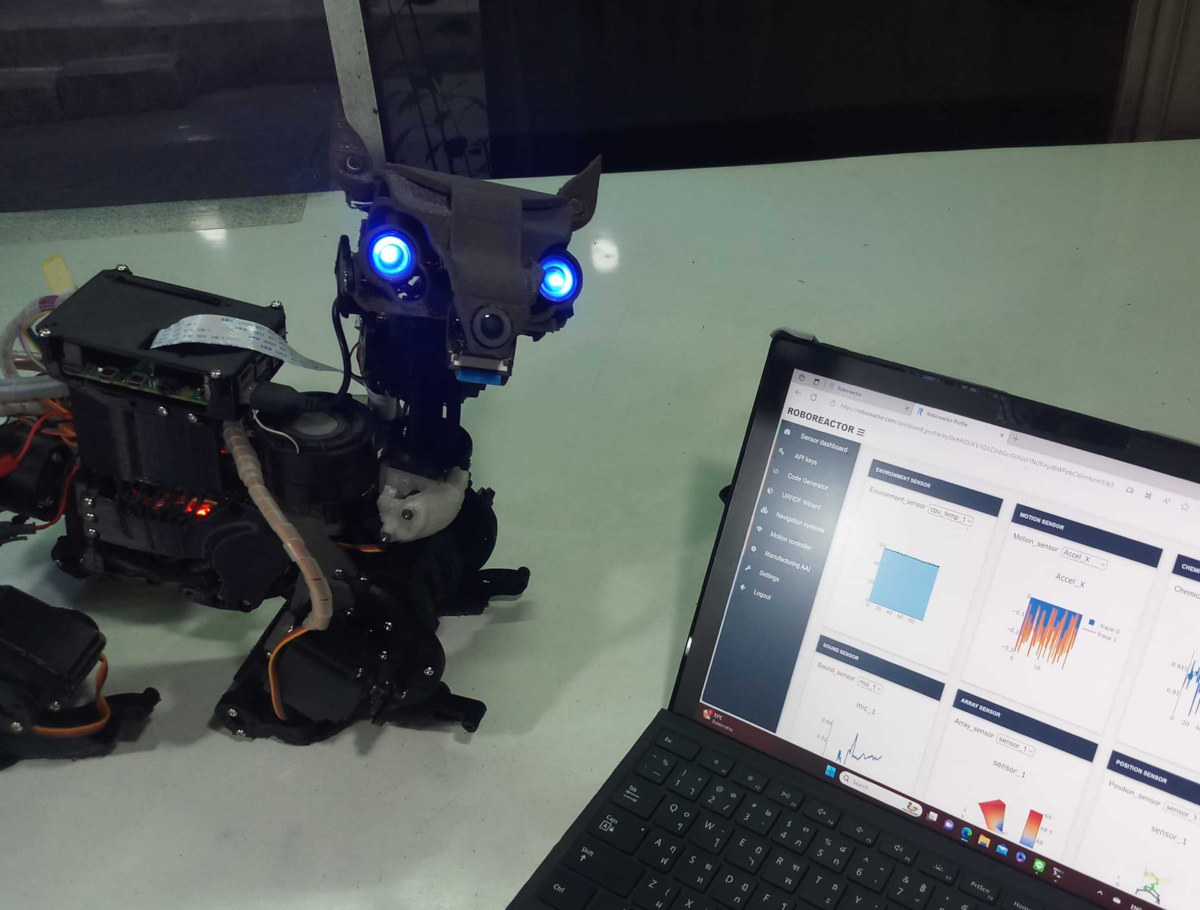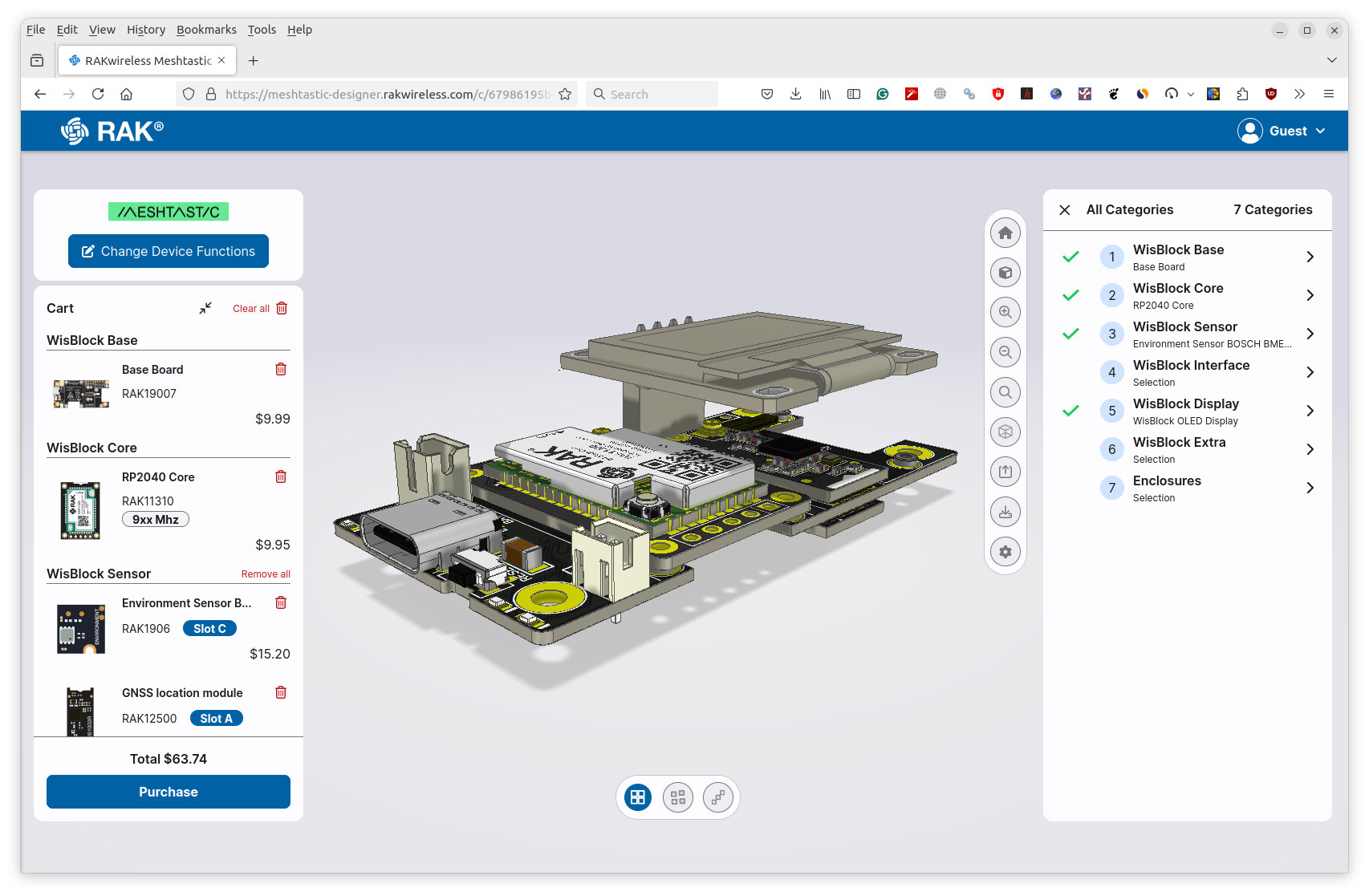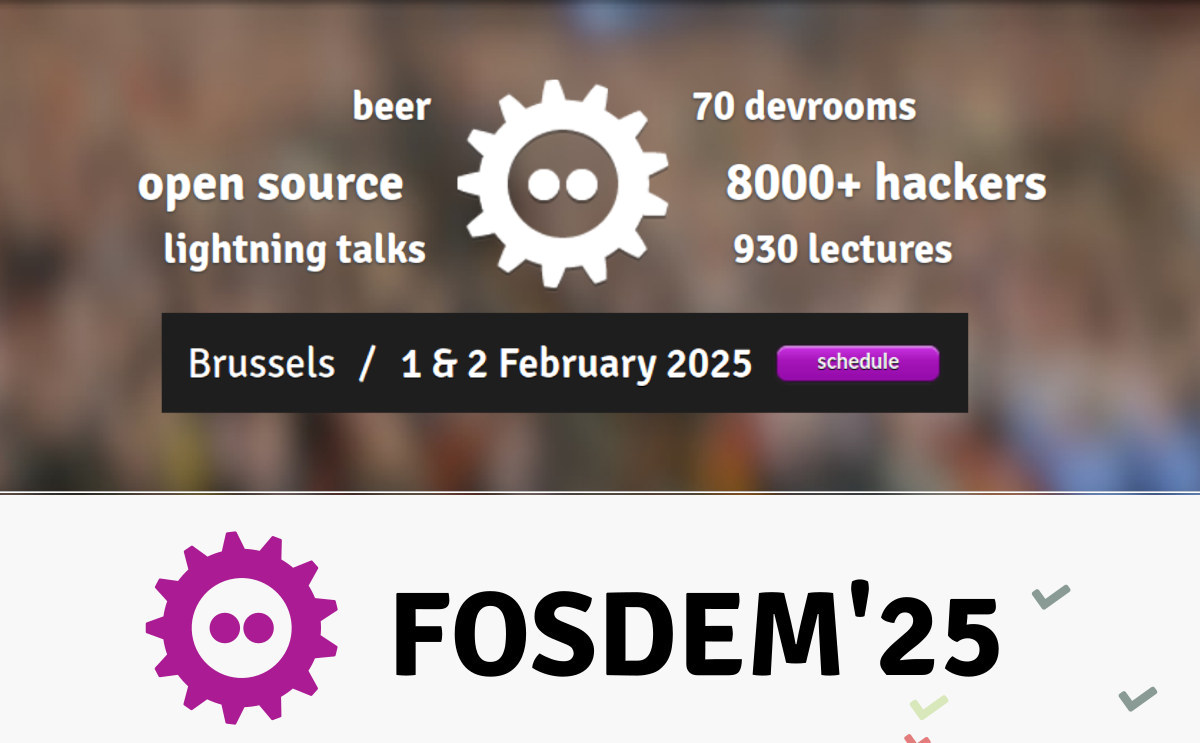GL.iNet has entered the low-cost KVM-over-IP market with the Comet (GL-RM1) remote KVM to remotely control any computer over an Ethernet connection with an HDMI port for video and audio input and a USB-C port for keyboard and mouse emulation. It’s an alternative to the Sipeed NanoKVM (Cube) with a more powerful quad-core processor, 1GB RAM, an 8GB eMMc flash, a gigabit Ethernet port, and support for up to 2K (2160×1440) resolution at 60 FPS. Comet GL-RM1 specifications: SoC – Quad-core CPU @ 1.5 GHz System Memory – 1GB DDR3 Storage – 8GB eMMC flash Video & Audio Input – HDMI port up to 2K @ 60 FPS (2160 x 1440 @ 60 FPS); H.264 encodding with 30 to 60ms latency Networking – Gigabit Ethernet RJ45 port USB USB 2.0 Type-A port to connect peripherals like a Fingerbot or ATX power control board USB 2.0 Type-C port for mouse/keyboard emulation […]
Haasoscope Pro open-source, real-time sampling USB oscilloscope supports up to 2GHz bandwidth (Crowdfunding)
The Haasoscope Pro is an open-source hardware, high-bandwidth, and real-time sampling USB oscilloscope. Building upon its predecessor, the Haasoscope, the new Pro model offers a bandwidth of 2GHz, 12-bit resolution, and a 3.2GS/s sampling rate. The Haasoscope Pro USB oscilloscope is “designed to be low cost, while maintaining super-fast performance.” While it only comes with 2 channels, the flexible design makes it possible to combine and sync multiple devices (using Cat5 cables) to double the sample rate or add more channels. The oscilloscope works with standard x10 passive probes but a custom active probe, the Haasoscope Pro-be, is also offered. It supports the full 2GHz analog bandwidth and is priced much cheaper than similar probes. The Haasoscope Pro USB oscilloscope’s high sampling rate and bandwidth make it ideal for radio frequency signal analysis and high-speed digital debugging. It is similar to the ThunderScope Thunderbolt and PCIe oscilloscope which offers more […]
FlashMyPico – Raspberry Pi Pico / Pico 2 code editing and firmware flashing from a web browser
FlashMyPico website allows you to write C code, build the firmware, and flash it to your Raspberry Pi Pico, Pico W, Pico 2, or Pico 2 W directly from a web browser instead of having to check out the code from GitHub, build it in a terminal, and then manually copy the resulting binary. I’ve given it a quick with a Raspberry Pi Pico 2 board. The first step is to head over to flashmypico.com from your computer or even an Android smartphone. You’ll need a web browser that supports WebUSB, so for example, Firefox is not an option, and I eventually had to use Google Chrome instead. There’s a detect device link on the bottom left, so I clicked on that first, and my Raspberry Pi Pico 2 was detected as “RP2350 Boot” after I put it in bootloader mode. But it just told me that my board is […]
OpenWISP open-source solution facilitates the management of OpenWrt router fleets
Last month, I wrote about the WL-AC1000 AP controller, a hardware-based solution to monitor fleets of routers, and wondered why the company (Wallys) did not provide a software solution instead. It was pointed out to me that software AP controller solutions for OpenWrt routers do exist, but they looked not mature. After a quick search, I found OpenWISP described as an “open-source solution for efficient IT network deployment, monitoring & management” designed for OpenWrt Linux routers. OpenWISP allows organizations with several routers to manage them in a centralized location, get alerts when issues occur, upgrade the firmware of multiple routers with a few clicks, create users with permissions to access specific routers, and so on. OpenWISP Features: Configuration Templates – Manage device settings by defining reusable configuration templates that apply updates system-wide with a single change. Automatic Provisioning – Connect and configure new devices with zero-touch auto registration for rapid […]
Compulab RoboDesigner – Design and order a custom SBC within one hour from your web browser
Compulab RoboDesigner is a new web-based tool and service that allows you to design and or a custom SBC using one of Compulab’s system-on-module within about one hour instead of going through the more lengthy process of designing a carrier board by yourself. I’ve given it a try, and it’s really easy to use even if you don’t have any engineering skills. It’s very similar to Gumstix Geppetoo introduced in 2013 for Overo SoMs, and now called Upverter with support for a wider range of modules including Raspberry Pi Compute Modules. The first step is to go to https://robo-designer.com/ and click on Select Functions. Right now, the selection of SoMs is rather limited because there’s only one: CMiMX8M C-Lab CORE with an NXP i.MX 8M Mini processor, 2GB of RAM, and a 16GB eMMC flash. You can then select the I/O modules you want from the list with the remaining […]
Roboreactor – A Web-based platform to design Raspberry Pi or Jetson-based robots from electronics to code and 3D files
Roboreactor is a web-based platform enabling engineers to build robotic and automation systems based on Raspberry Pi, NVIDIA Jetson, or other SBCs from a web browser including parts selection, code generation through visual programming, and generating URDF models from Onshape software. You can also create your robot with LLM if you wish. The first step is to create a project with your robot specifications and download and install the Genflow Mini image to your Raspberry Pi or NVIDIA Jetson SBC. Alternatively, you can install Gemini Mini middleware with a script on other SBCs, but we’re told the process takes up to 10 hours… At this point, you should be able to access data from sensors and other peripherals connected to your board, and you can also start working on the Python code using visual programming through the Roboreactor node generator without having to write code or understand low-level algorithms. Another […]
Meshtastic Designer helps you build custom Meshtastic solutions with RAKwireless Wisblock components
RAKWireless introduced the Wisblock IoT Modular System in 2020 to let developers easily create LoRaWAN IoT solutions with various core modules, baseboards, and sensor/IO modules. The company kept adding new Wisblock modules year after year, and there are now over 120 modules part of the Wisblock ecosystem. While the large choice of modules makes designing IoT prototypes more flexible, customers often face challenges in checking compatibility and selecting the right modules for the right slots. That’s why RAKWireless has been working on web-based online designer tools for the Wisblock ecosystem. The first release is the Meshtastic Designer used to quickly configure and create their own Meshtastic devices from the module to enclosure, and place an order from there once the design is complete. I’ve given it a quick try myself. I wanted a Meshtastic device with a display, a keyboard, a GNSS module, and an air quality sensor since the […]
FOSDEM 2025 schedule – Embedded, Open Hardware, RISC-V, Edge AI, and more
FOSDEM 2025 will take place on February 1-2 with over 8000 developers meeting in Brussels to discuss open-source software & hardware projects. The free-to-attend (and participate) “Free and Open Source Software Developers’ European Meeting” grows every year, and in 2025 there will be 968 speakers, 930 events, and 74 tracks. Like every year since FOSDEM 2015 which had (only) 551 events, I’ll create a virtual schedule with sessions most relevant to the topics covered on CNX Software from the “Embedded, Mobile and Automotive” and “Open Hardware and CAD/CAM” devrooms, but also other devrooms including “RISC-V”, “FOSS Mobile Devices”, “Low-level AI Engineering and Hacking”, among others. FOSDEM 2025 Day 1 – Saturday 1 10:30 – 11:10 – RISC-V Hardware – Where are we? by Emil Renner Berthing I’ll talk about the current landscape of available RISC-V hardware powerful enough to run Linux and hopefully give a better overview of what to […]


